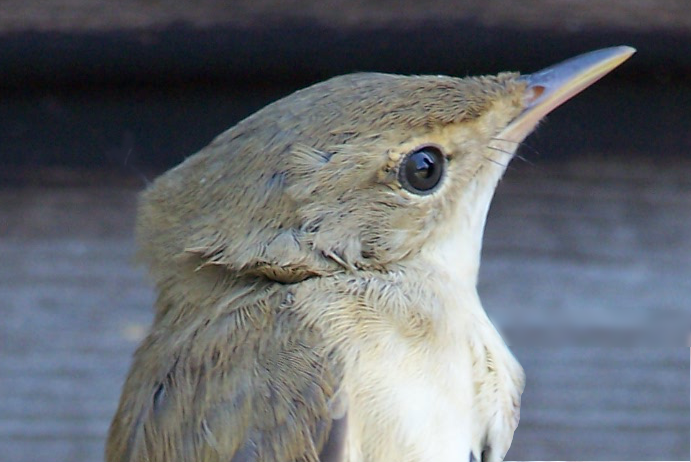Ringing and Results

Pullus ringing does give interesting results
Toby Spall has been a dedicated nest-finder and pullus-ringer for more years than he cares to remember - you may have read his article in the recent issue of BTO News. But he still finds great pleasure in small rewards from this activity, as he explains here.
You know how it is. You keep knocking your head against a wall until the mere stopping brings pleasurable relief or you wait half an hour for a 41 bus and then two or three come along together.
Digression warning.
(There is a reason for this: I was once returning to my north London home from Tottenham Hale Station at about ten thirty at night. I boarded a bus where both the driver and conductor were sitting in the passenger section, almost asleep. Suddenly the conductor woke up, looked at his watch and exclaimed; ‘Come on ‘Arry, if we don’t get a move on we’ll catch all the crowds on the ‘igh Road!’
I couldn’t have made it up. We shot round the one way system and just missed the crowds, closely followed by two other 41 buses. Well, being a bus driver you wouldn’t want to, be busy, offer a service or do anything useful would you?)
Digression finished.
You know me. The miserable old geezer who tells you that you need to hand-catch 200 Moorhens before you get a result.
But sometimes it can be in an Eagle Owl’s nest in Fenno-Scandinavia.
Anyway. You may not have noticed two seemingly, on first sight, rather unremarkable movements between Rye Meads and Icklesham, East Sussex last summer.
I seem to have spent the last forty years telling you all that the best ringing of all is pullus-ringing. It is usually very non-productive. Who wants to spend a lot of time finding and becoming truly upset about failing nests and ringing just a handful of birds during May and June? Hey! that Greenish Warbler, Rosefinch or Bluethroat may be out there for the catching!
Anyway, back to those two unremarkable birds, twenty rings apart, like a couple of buses.
The BTO are now very efficient in sending back recoveries within days and this has highlighted these two movements. In most of my years of ringing it would have taken over a year to be told of these.
Remarkably I can remember ringing both of these birds, telling them to go somewhere, keep safe and report back to Daddy. Yes, I am that daft.
The first bird was a Sedge Warbler. I tapped mum from the nest on 21st May on the centre-channel and watery bank of 11 lagoon. The nest was well hidden in Great Hairy Willowherb supported by brambles and contained 5 eggs. I returned on 2nd June and ringed 5 young. They were about five or six days old.
The second was a Reed Warbler, right outside the Ringing Hut! This was a brood I almost missed. At eight days old some would have considered too old to ring but I know Reedies, these didn’t look cowered, begged for food when I offered and were successfully ringed and settled, gratefully back into the nest.
From this we learn several things.
That in ringing pulli we don’t disturb their success rates. Seems silly but I really do worry about this.
That both birds had fledged and left their natal area in less than sixty days.
And that whilst the Bluethroat, Greenish Warbler and Rosefinch all evaded our nets, my little efforts at the Acrocephalus Warblers at Rye Meads has taught us something.
